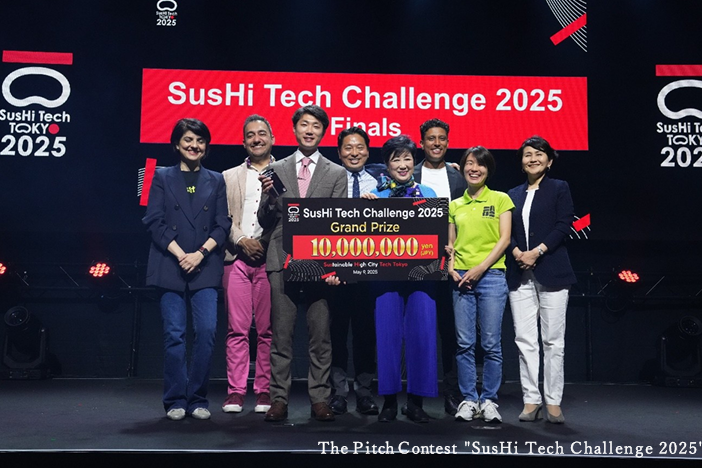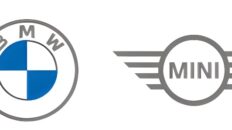With over 57,000 attendees from more than 100 countries, the recently concluded SusHi Tech Tokyo 2025 is solidifying the Japanese capital’s place at the forefront of global innovation, sustainable technology, and urban startup ecosystems.
Hosted by the Tokyo Metropolitan Government (TMG) from May 8-10 at Tokyo Big Sight, this year’s event marked a significant leap from the previous year’s turnout of 40,206. In its third year, SusHi Tech has become one of Asia’s largest startup conferences and is driving Tokyo’s vision of becoming the “world’s most startup-friendly city.”
A Vision of Sustainable Urban Innovation
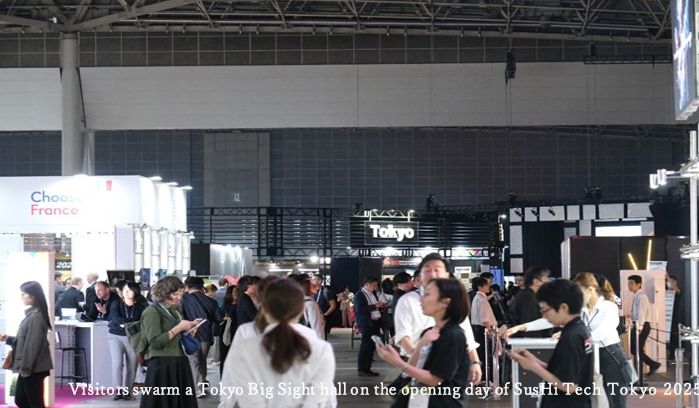
SusHi Tech, short for Sustainable High City Tech Tokyo, sits at the heart of TMG’s ambitious “10 × 10 × 10 Innovation Vision” – aimed at increasing by tenfold the number of startups, unicorns, and collaborative projects in Tokyo within five years.
“It has expanded so much and got richer in content,” said Governor Yuriko Koike, who pledged to allocate US$1 billion over five years to support this transformation. Over US$900 million has already been budgeted.
The vision isn’t just monetary. It includes the revamp of the Tokyo Innovation Base (TIB), which has already hosted 900+ events and welcomed over 200,000 visitors since its opening. The newly enhanced space provides more room for startups, entrepreneurs, investors, and ecosystem players to network and scale ideas.
Startups, Tech and Global Synergy
One of the event’s main draws was the Global Startup Programme, which featured 613 startup exhibitors – 60% of them from outside Japan. Visitors explored groundbreaking solutions in:
- Artificial Intelligence (AI)
- Quantum Computing
- Food Technology and Sustainability
- Digital Health and Manufacturing
- Smart City Design and GovTech
Highlights included a startup that creates coffee through plant cell cultivation, reducing water use by 98%, and another that uses 3D printing to recreate sushi using powders derived from food waste.
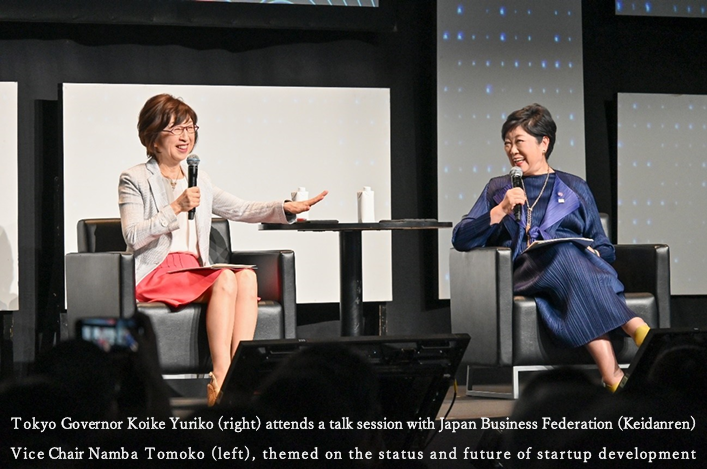
In her opening address, Governor Koike, a former member of national parliament, who was re-elected last July to her third term as Tokyo’s first female governor. noted:
“We will create a Japanese model for use of AI in government services”.
Artificial Intelligence was a key talking point throughout the summit. Notable speakers included:
- Audrey Tang, Taiwan’s Cyber Ambassador-at-large, who advocated for the creation of “digital public goods” and open-source innovation.
- David Ha, CEO of Sakana AI, who shared how AI can be deployed to solve deeply rooted social challenges across Asia.
The conversations reflect TMG’s commitment to releasing its first AI Strategy this summer – one that aims to create a “Japanese model” of AI integration that balances efficiency, equity, and transparency.
Global Collaboration, Local Impact
This year’s event welcomed 16 international pavilions, up from just five in 2024. Participating countries included Singapore, France, Sweden, UAE, Switzerland, Australia, and Canada. Startups and ecosystem builders used the platform to forge cross-border partnerships and explore expansion opportunities.
“We’ve already had feedback from the exhibiting French enterprises that they had more business encounters than last year,” said Goto Takafumi of Business France.
In a new twist, global cities such as Jakarta and Malmö took the stage to deliver reverse pitches, inviting Tokyo-based innovators to help co-develop solutions for local urban problems – from waste management to renewable energy deployment.
A Festival for the Public, Too
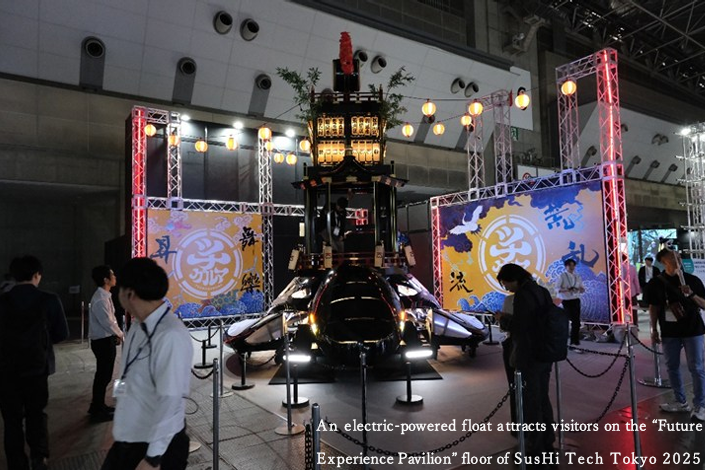
SusHi Tech Tokyo wasn’t limited to startups and suits. The Future Experience Pavilion opened its doors to the general public, offering hands-on demonstrations and family-friendly activities like:
- Controlling a 5-meter-tall robot
- Sampling 3D-printed sushi
- Exploring immersive digital cityscapes
This approach demonstrates Tokyo’s belief that innovation should be inclusive and experiential, reaching everyone from entrepreneurs to everyday citizens.
Celebrating Innovation: SusHi Tech Challenge Winners
Out of 657 submissions from 46 countries and regions, one standout startup – 3D Architech, a Japanese company specialising in metal 3D printing – was awarded the SusHi Tech Challenge Grand Prize. The company’s mission? To enable efficient, scalable manufacturing that reduces costs and environmental impact.
Looking Ahead: SusHi Tech 2026
The Tokyo Metropolitan Government has already confirmed that the next SusHi Tech Tokyo will return to Tokyo Big Sight from April 27–29, 2026. With the city now ranked 11th globally in Startup Genome’s latest Global Startup Ecosystem Report, Tokyo appears well on its way to securing its place among the world’s top startup capitals.
Vice Governor Miyasaka Manabu, a former Yahoo Japan chairman, summed it up:
“We need to work still harder to increase unicorns.”



